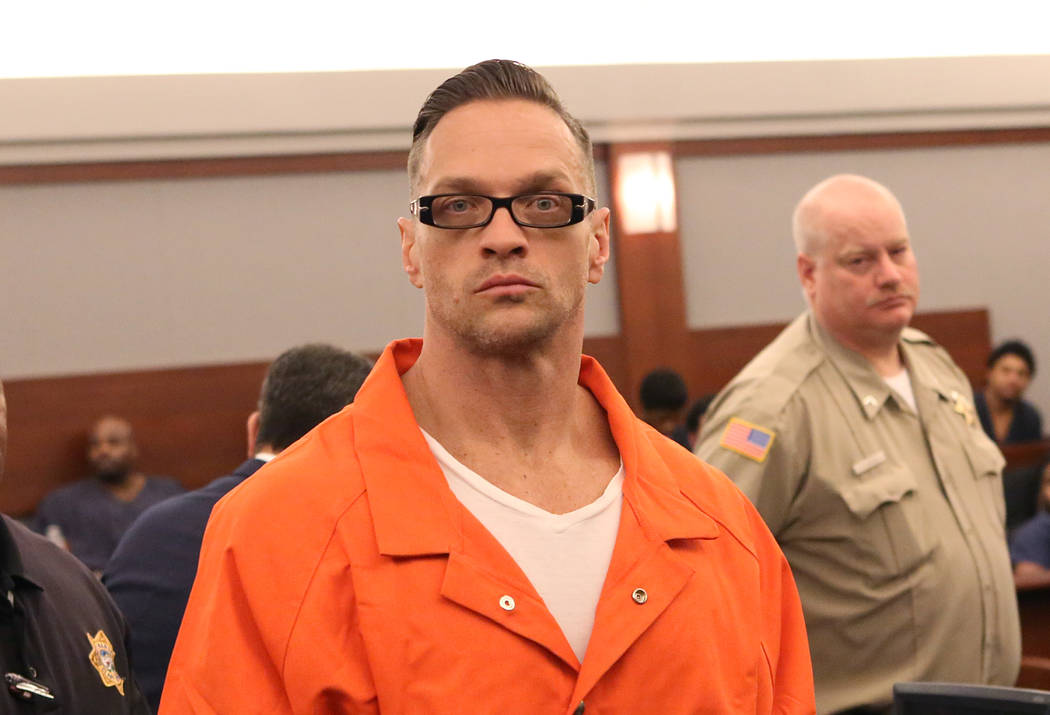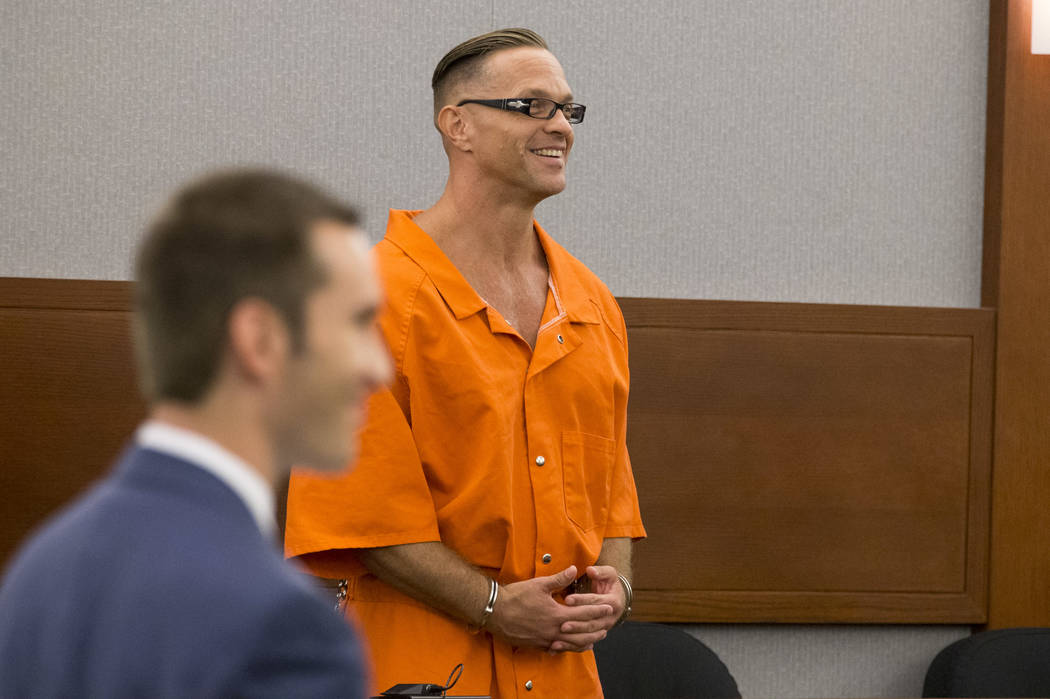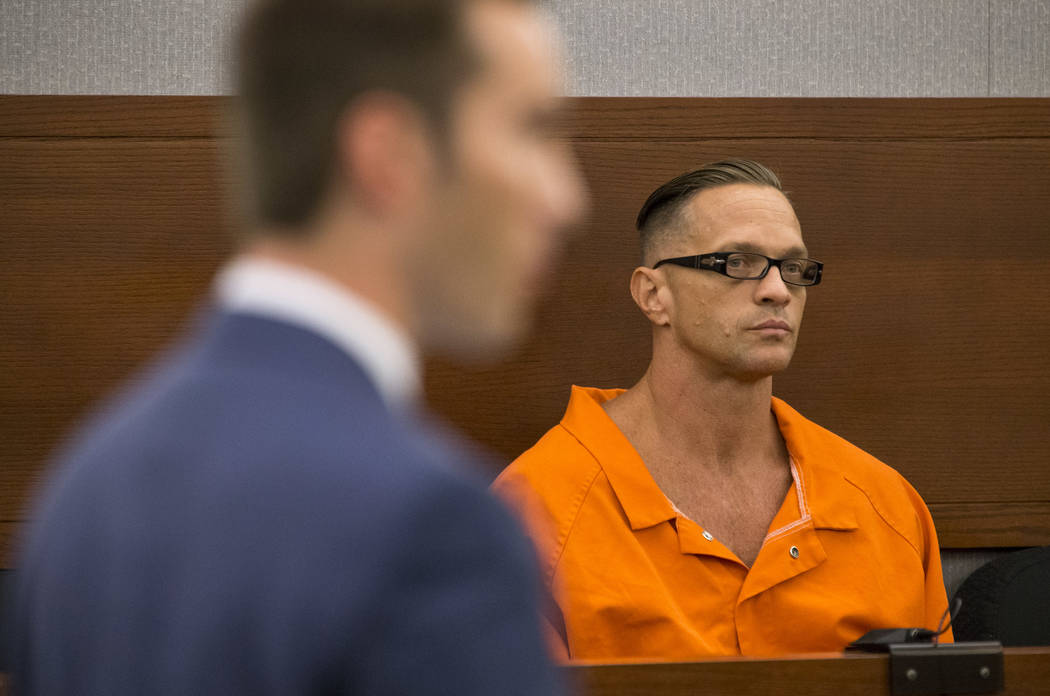Inmate who wants to die awaits Nevada Supreme Court decision



As a prisoner awaits a decision on his death wish, the Nevada Supreme Court on Tuesday heard arguments on whether the state Department of Corrections should proceed with an untested method of lethal injection.
“It is a very important subject,” Chief Justice Michael Douglas said after more than an hour of statements from Scott Dozier’s federal public defender and attorneys for the state.
David Anthony, a lawyer for the 47-year-old death row inmate who was scheduled to be executed in November and has said he wants to die, argued for a two-drug cocktail that did not include a paralytic drug called cisatracurium, which could mask suffering. Dozier, a twice-convicted murderer, has not wavered from a desire to have his sentence carried out, which he first expressed in a letter to District Judge Jennifer Togliatti in late 2016.
“When we talk about Mr. Dozier and what he wants, there are also larger issues at stake here, which is how are we going to execute people in the state of Nevada,” Anthony said. “And if it’s not humane for us, shouldn’t it be the province of our courts to say whether something is cruel or not? We should have humane executions in this state.”
Last year, prison officials concocted a three-drug mixture that included the paralytic, anxiety drug diazepam and pain reliever fentanyl. While the state’s diazepam has since expired, Assistant Solicitor General Jordan Smith told the Supreme Court that under the suggested protocol, Dozier would not suffer.
“There is no substantial risk here,” Smith said, suggesting that officials could still find the drugs to carry out the execution, without saying how. “When the protocol is carried out as written … Mr. Dozier is not at risk of awareness, air hunger, pain, panic.”
Justice Michael Cherry openly contemplated the sincerity of Dozier’s desire.
“If we approve the three-drug protocol, is he going to withdraw his request to die?” Cherry asked.
Anthony said Dozier has indicated that he would not.
“I don’t want to be played in this by Mr. Dozier or by the attorney general or by the district attorney,” Cherry continued. “I want to know exactly what’s going to happen if we rule in favor of the AG and the district attorney, or we rule in favor of the federal public defender.”
Dozier’s death was postponed after Togliatti denied the use of the paralytic drug and granted a request from the lawyers for the Department of Corrections to stay the execution as the lethal injection process is reviewed by the high court. The justices gave no indication Tuesday when a decision would be made.
Dozier would be the first inmate executed in Nevada since 2006.
A Clark County jury convicted Dozier in September 2007 of killing 22-year-old Jeremiah Miller at the now-closed La Concha motel. In 2005, Dozier was convicted in Arizona of second-degree murder in another case.
Justice Ron Parraguirre pointed out that Dozier has remained steadfast, questioning whether the federal public defender was in conflict with the condemned man.
“It seems you’re looking to the future to set a protocol for future clients, but this client specifically doesn’t want this method challenged from what I understand,” the judge said.
Anthony argued that Dozier wanted a “less painful” death.
“His first priority was his own execution,” the lawyer said. “And his second priority was to find out about the facts, and if he had the preference, he would prefer a humane execution. That has been a consistent position by Mr. Dozier.”
Contact David Ferrara at dferrara@reviewjournal.com or 702-380-1039. Follow @randompoker on Twitter.
Nevada executions
Nevada’s last execution, by lethal injection, was in 2006, when Daryl Mack was put to death for the 1988 rape and murder of a Reno woman, Betty Jane May.
Nevada has executed 12 inmates since capital punishment was reinstated by the Legislature in 1977.













